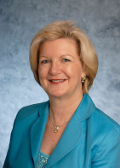29 May 2014
The nature of violence has changed in recent years. Battlefield wars have given way to more widespread and inter-connected forms of violence affecting civilian populations. Organized criminal activity crosses borders and undermines legitimate activities. Both internal and external factors drive violent conflict. What can the international community do differently to prevent violence and lay the foundations for ongoing peace? This webinar summarizes a recently updated World Bank e-learning course that explores modern forms of violence and helps develop capacity to confront it.
- A video recording of the webinar (link will take you to the World Bank’s Adobe Connect service which requires Flash; please allow some time for the player to load)
- The PowerPoint slides used (PPTX, 7.8 MB)
- A background report on the Papuar New Guinea case study: Negotiating with the PNG mining industry for women’s access to resources and voice: The Ok Tedi Mine Life Extension Negotiations for Mine Benefit Packages (PDF, 7.2 MB)

Barbara Friday has over 25 years of international development experience in 20 countries across Latin America, Africa, Asia and the Middle East. Her background combines designing and delivering adult learning products, as well as managing and implementing projects in conflict environments. Ms. Friday designed the 2011E-Learning Course on Violence, Conflict and Fragility and most recently updated its content for the 2014 version. The four-module course, based on the 2011 World Development Report, explores modern forms of violence, causes, and impacts; describes the building blocks for peace, and recommends new approaches for working in fragile situations and is the subject of today’s discussion.

Rea Abada Chiongson has 20 years of experience working on justice, governance, gender and development issues at the local, national and global levels. She is presently a gender and justice advisor/consultant at the World Bank Institute’s gender and fragility program. Prior to that, she was the Gender and Justice Advisor of the Justice for the Poor Program of the World Bank’s Justice Reform Practice Group.She worked as a gender and law specialist for the Asian Development Bank, UN Women, UNDP, UNFPA and the Swiss Agency for Development and Cooperation and advised State entities, governments, legislatures and judicial authorities in East Asia and Pacific on integrating gender across a wide range of development concerns.